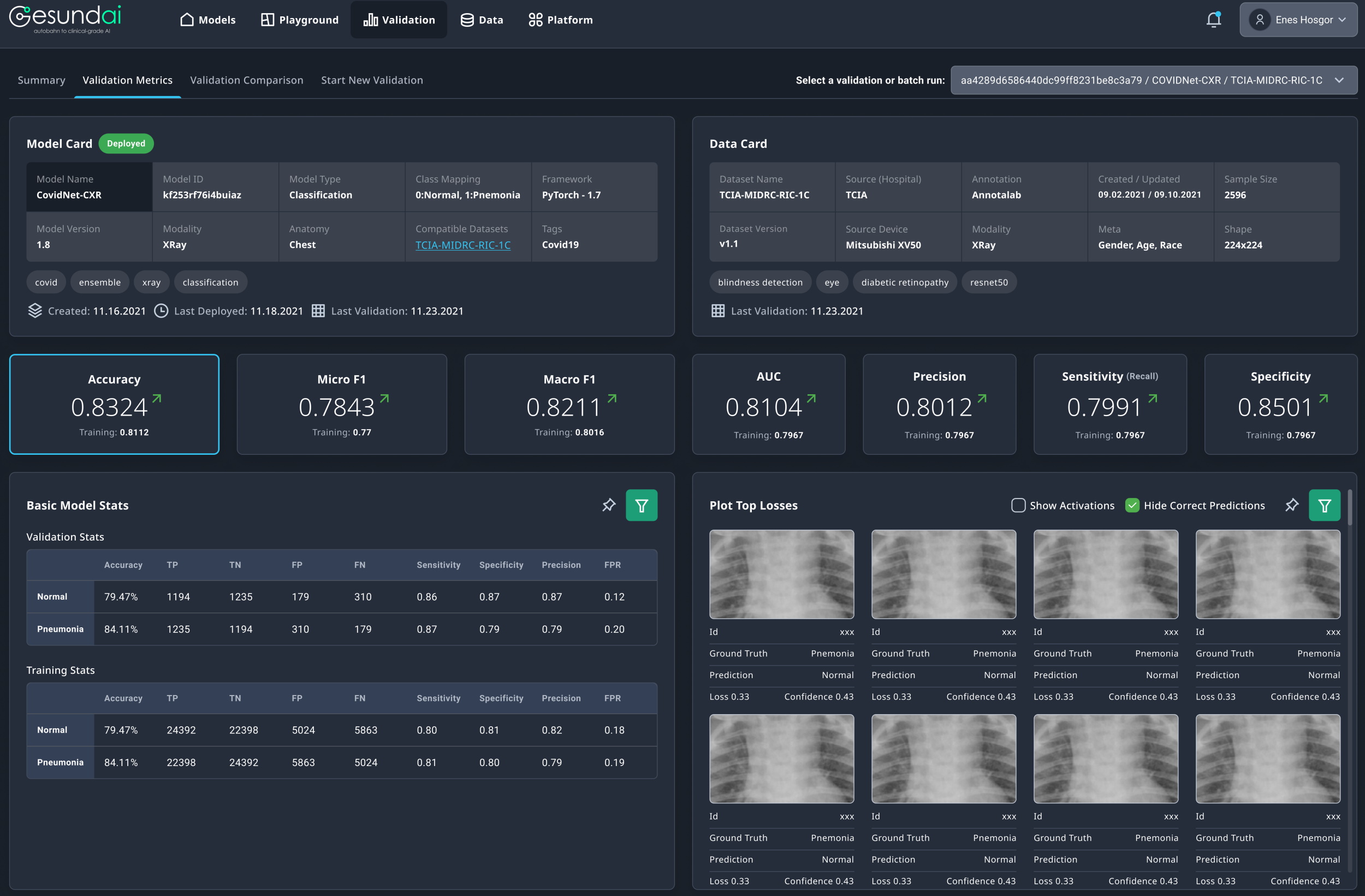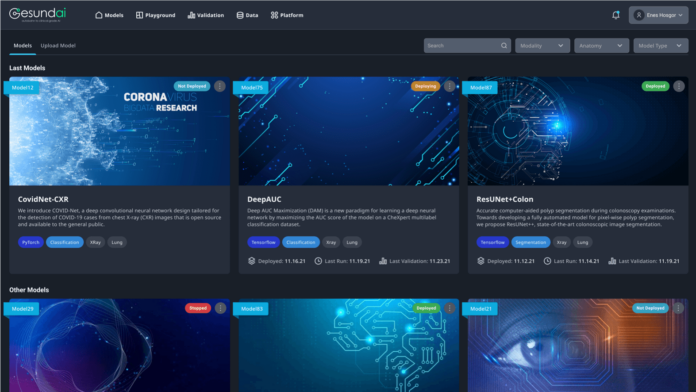It is one thing to develop a medical algorithm and quite another to prove that it really works. To do that, you need something crucial that's hard to come by: medical data. And a startup is ready to provide that in abundance, along with the tools to facilitate validation studies.
Healthy, founded in 2021, emerged with a 2 million seed round led by 500 Global. The company has already come a long way, with viable platforms, 30 customers in its sales channel and expected revenue this quarter, founder Enes Hosgor said.
Healthy it is basically a Contract Research Organization (CRO) for AI companies developing medical or academic algorithms testing their own models. In the same way that a CRO might design a clinical trial for a drug or medical device company, the Healthy curates data that enables AI companies to test their own products and builds the IT infrastructure to make the comparison seamless.
“I like to think of us as a machine learning operations company,” Hosgor said. "We don't do algorithms."
A medical algorithm is only as good as the data it is trained on, and it is clear that obtaining diverse and usable data sets can be a challenge. For example, A study published in JAMA in 2020 analyzed 74 scientific articles describing deep learning algorithms in disciplines such as radiology, ophthalmology, dermatology, pathology, gastroenterology, and pathology; 71% of the data used in these studies comes from New York, California and Massachusetts.
In fact, 34 US states did not contribute any data to the pipeline that had been used to train these algorithms, calling into question how generalizable they might be to a broader population.
The problem also exists in different types of health care providers. I know could train an algorithm on data collected at a large and renowned academic hospital. But if you want to implement that in a small community hospital, there's no guarantee that it will work in that very limited environment.
Taken together, the data sets used to train algorithms are generally smaller than they should be, according to a meta-review of 152 studies published in the BMJ. Naturally there are some algorithmic success stories, but the data volume problem is an industry-wide problem.
Technology alone cannot solve all these problems; you cannot sort or provide data that is not there before. For example, genetic studies for people of non-European descent, which they are conspicuous by their absence. But Healthy it narrowly focuses on a problem where technology could help: facilitating access to existing data and creating partnerships that open new avenues for data sharing.
A screenshot of the Gesund validation platform.
The data source of Healthy it comes from “existing data sharing agreements with clinical sites,” Hosgor said. Right now, Healthy focuses on imaging data collected at the University of Chicago Medical Center, Massachusetts General Hospital, and the Berlin Charité. (The company plans to expand beyond radiology in the future.)
Others, like the Nightingale Open Science Project which will provide clinical datasets free of charge to researchers (not affiliated with the plemic "Nightingale Project"). But while the data itself is a key piece, it's really the technology stack that Hosgor sees as the company's secret weapon.
“Everyone does ML (Machine Learning) in the cloud,” Hosgor explained. “And because the standard healthcare provider doesn't have a cloud, that's all over before it starts,” he said. “We have built a technology suite that can reside on-premises, inside a hospital firewall. It does not rely on any third-party managed services.”
From there, the platform includes a "low code" interface. In short, doctors and providers can essentially drag and drop the data sets they need and test their own algorithms on that data.
“We're six months old, but we went live and built this first product that allows model owners to run their algorithms against data to produce precision metrics on the fly, in high-compliance environments where they don't have access to data. cloud resources. That is our secret key,” he explained.
For the moment, Healthy, Like Nightingale, offers some of its services for free. The Community Edition The company's allows academics with existing algorithms to test their algorithms for free (but they will also have to upload their own data sets).
In the meantime, it is the AI companies that will foot the bill for the company's "premium" version. This, Hosgor says, will give paying customers access to validated data sets. And there is proof that they will pay for the data they need. For now, Healthy claims to have a pipeline of 30 leads and expects to generate revenue this quarter.
"We were at RSNA in Chicago last November and every AI company we talked to said 'yes, I need evidence of the results.'"
The $2 million pre-seed round represents all funding from Healthy, but Hosgor expects the company to collect again this year. In the near future, the company will focus on R&D and expand its clinical partnerships in the United States and Europe.




